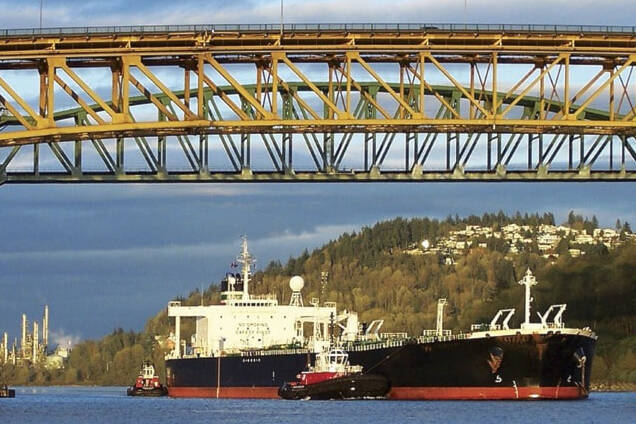Communities along Vancouver Island’s south coast want to a ban imposed on tanker ships during adverse weather conditions when spill response teams are unable to operate due to rough seas.
Local councils in Metchosin and Sooke are getting behind a lobby asking B.C. Environment Minister George Heyman to push Transport Canada for the ban. They will also request provincial assistance for spill response equipment, protective gear, shoreline response strategies, and community evacuation plans.
Sooke Councillor Tony St-Pierre said the action won’t stop tanker traffic, only stop it from travelling when not possible to mitigate disasters. He added the response to Heyman could prevent downloading on communities and make sure they have the necessary equipment in case of a spill.
The move comes even as some councillors express doubts it would have the desired effect.
Al Beddows pointed out that Sooke has vigorously fought over the years to limit tanker traffic. In 2014, a non-binding referendum was held where about 70 per cent of voters opposed the expansion of oil tanker traffic through coastal B.C. waters.
“I don’t like the idea of those tankers coming up and down the coast, but the (Trans Mountain) pipeline is almost done. It’s not going to change things. We are going to get those 400 tankers a year,” he said.
“If we write a letter I’d like to think it would have some influence, but I have a feeling it will have absolutely no influence.”
RELATED: West Shore-based tugs to escort oil tankers through Strait of Juan de Fuca
RELATED: Trans Mountain pipeline and the economics of oil
Meanwhile, councillor Dana Lajeunesse said he was not certain about the prohibition on tanker travel during unfavourable sea conditions, noting it raises concerns that forcing them to anchor might pose more significant risks than allowing them to proceed.
Sooke is among five area governments asked to support the ban. Sc’ianew First Nation, the Capital Regional District, Esquimalt and Colwood have also been asked to respond.
The Trans Mountain Expansion project runs from Edmonton to Kinder Morgan’s Westridge Marine Terminal and the Chevron refinery in Burnaby.
The project involves twinning an existing oil pipeline built in 1953 and is expected to result in a significant increase in oil tanker traffic in Vancouver and Victoria waters, servicing destinations like California, China, and other foreign buyers.
To enhance spill response capabilities, KOTUG Canada and Trans Mountain will manage a fleet of tugboats stationed at the new oil response base at Beecher Bay, near East Sooke.
The base is part of a broader $150-million expansion by the Western Canada Marine Response Centre, which extends to Sidney, Port Alberni, Nanaimo, and Ucluelet, in preparation for the increased spill response demands associated with the Trans Mountain pipeline expansion project.

